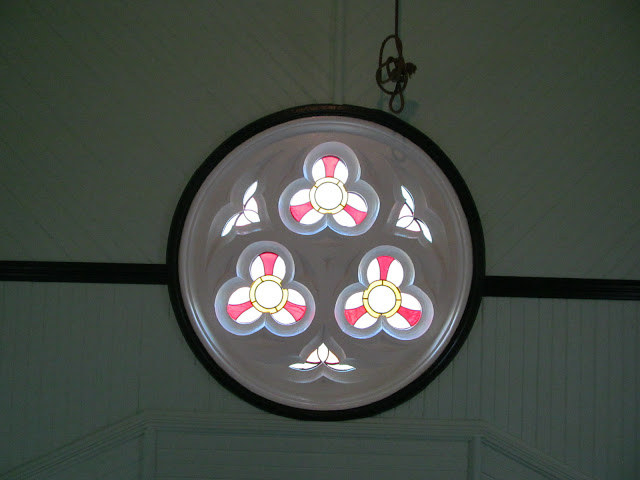It’s a cliffhanger, but a
volunteer group has taken over the Cape Bear lighthouse just days before it went
on the auction block. One hundred years ago last month, a distress signal from
the Titanic was received at the lighthouse.
by Steve Sharratt
BEACH POINT — One of P.E.I.’s most storied lighthouses sitting on the brink
of a cliff edge has been adopted just days before it would have been up for
private sale.
The Cape Bear lighthouse, the first Canadian lighthouse to receive the distress call from the Titanic in 1912, has been claimed at the last minute by a volunteer group.
“It was on the verge of the deadline, but we do have a community group forming to take charge,’’ confirmed Martina MacDonald, general manager of Active Communities Inc.
“It means the Cape Bear lighthouse will stay in the hands of a community rather than become the property of a private owner.”
MacDonald said almost 30 people turned out late last week for an emergency meeting called by Active Communities to help organize a group to adopt the 130-year-old structure before the federal deadline May 29.
Fisheries and Oceans Canada declared about 480 active lighthouses and nearly 490 inactive lighthouses surplus last year. Under the new Heritage Lighthouse Protection Act, the properties can be transferred to new owners wishing to take advantage of their heritage designation or tourism potential.
“There’s always been a community interest but we felt we had to step up the pace and beat the deadline,’’ said MacDonald. “We were four days away from losing it.”
The Cape Bear lighthouse is open during the summer and features the Marconi radio display where the Titanic distress call was heard, but a larger core group of volunteers is expected to distribute the work.
Built around 1881, the lighthouse is on the brink of the cliff now and within five metres of the edge. When The Guardian visited the site in April to research a story for the 100th anniversary of the Titanic disaster, the guardrail along the cliff had not toppled over.
Fisheries and Oceans has indicated it will assist in the relocation of the structure which was built around 1881.
The community development assistance by ACI is the area of business cut recently by federal government budget reductions to the Atlantic Canada Opportunities Agency. ACI will lose about $100,000 and two positions.
“It’s business as usual for us,’’ said MacDonald. “But the funding for community development, like assisting in the lighthouse venture, will not be available to us by next spring.”
The Cape Bear lighthouse, the first Canadian lighthouse to receive the distress call from the Titanic in 1912, has been claimed at the last minute by a volunteer group.
“It was on the verge of the deadline, but we do have a community group forming to take charge,’’ confirmed Martina MacDonald, general manager of Active Communities Inc.
“It means the Cape Bear lighthouse will stay in the hands of a community rather than become the property of a private owner.”
MacDonald said almost 30 people turned out late last week for an emergency meeting called by Active Communities to help organize a group to adopt the 130-year-old structure before the federal deadline May 29.
Fisheries and Oceans Canada declared about 480 active lighthouses and nearly 490 inactive lighthouses surplus last year. Under the new Heritage Lighthouse Protection Act, the properties can be transferred to new owners wishing to take advantage of their heritage designation or tourism potential.
“There’s always been a community interest but we felt we had to step up the pace and beat the deadline,’’ said MacDonald. “We were four days away from losing it.”
The Cape Bear lighthouse is open during the summer and features the Marconi radio display where the Titanic distress call was heard, but a larger core group of volunteers is expected to distribute the work.
Built around 1881, the lighthouse is on the brink of the cliff now and within five metres of the edge. When The Guardian visited the site in April to research a story for the 100th anniversary of the Titanic disaster, the guardrail along the cliff had not toppled over.
Fisheries and Oceans has indicated it will assist in the relocation of the structure which was built around 1881.
The community development assistance by ACI is the area of business cut recently by federal government budget reductions to the Atlantic Canada Opportunities Agency. ACI will lose about $100,000 and two positions.
“It’s business as usual for us,’’ said MacDonald. “But the funding for community development, like assisting in the lighthouse venture, will not be available to us by next spring.”



.JPG)











































